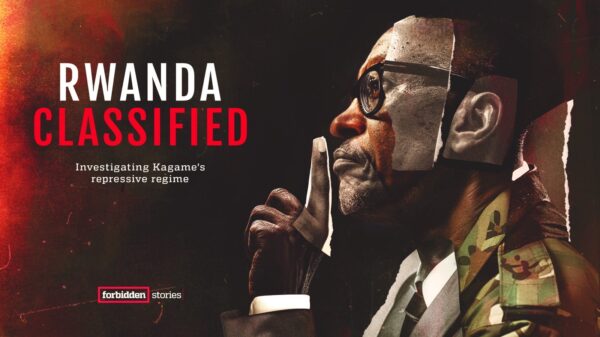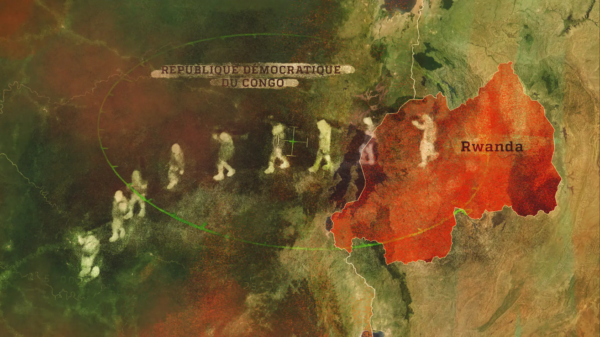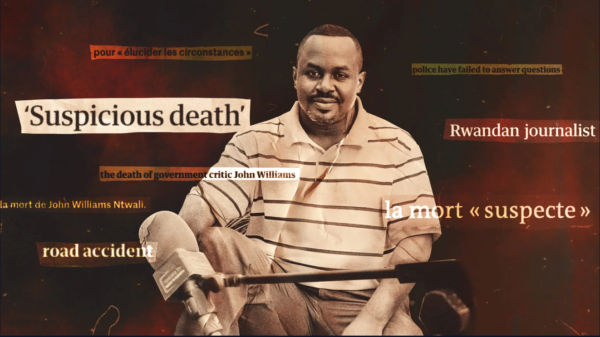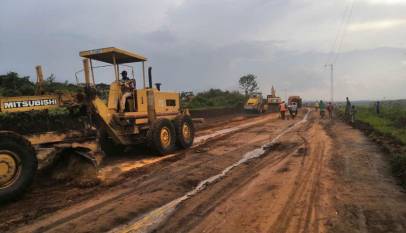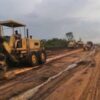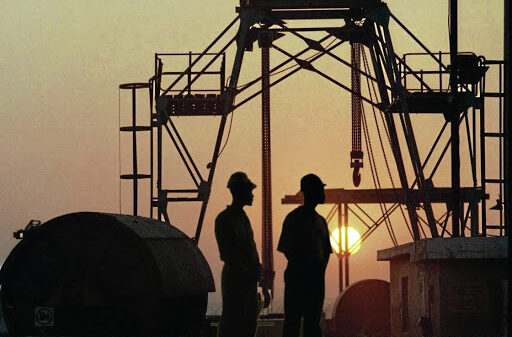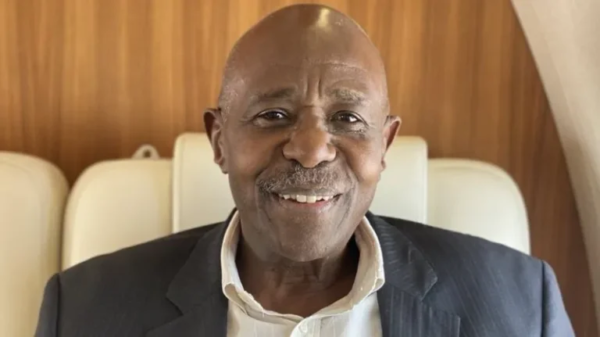‘Miners have no way of knowing where billions paid to government and community entities went’
International mining companies operating in SA are obligated to pay billions of dollars in royalty payments to the government and community entities, but they have no way of knowing where and how the money is spent.
A #MineAlert investigation shows that in the 2018 financial year 10 publicly listed British companies reported paying out at least $1.076bn (about R18.05bn) to government entities between July 2017 and December 2018.
The payments were reported to have been paid to Sars, local government entities and community structures as tax, royalties, infrastructure improvement payments and other mining or licence fees. At least $281m of these payments were classified as royalty payments.
Mining royalties in SA are classified into state royalties paid to Sars, and contractual royalties paid to the owners of the land as part of an agreement between them and mine host communities.
According to the Treasury, though state royalty payments are classified as “non-tax revenue” — revenue not directly generated from tax — they are still “paid to Sars by mining companies and flow into the National Revenue Fund, along with other tax revenue”.
Sars collects all the fees, which are paid into the state’s national revenue fund and are allocated for different purposes by the Treasury annually.
Asked where the 2018 state royalty payments went, and how decisions were made about where they were allocated, the Treasury said: “As per the majority of tax instruments that SA uses to raise tax revenue, mineral and petroleum royalties are not earmarked for a specific spending programme [or, in this case, for mining communities].
“Government decides on an annual basis how best to spend the total revenue collected in the national revenue fund — based on government’s objectives and priorities,” said the Treasury.
Recent tax statistics show the state royalty revenue collected by the Treasury and Sars in the 2017-2018 financial year for mining and petroleum royalties totalled R7.617m, and R8.612m in the 2018-2019 financial year. The commodities that brought in the most revenue in the 2017-2018 financial year were iron ore (28.5%), coal (21.5%), platinum (11.2%), manganese (8.7%), gold and uranium (7.7%).
The remaining payments would have been paid as contractual royalties to the owners of the land, including communities. However, questions sent to local municipalities who would have received some of these payments on behalf of the communities, asking for confirmation of whether the disclosed payments had been received and allocated for their intended purposes — including for the benefit of the communities that host the mining projects — remained unanswered.
“The key challenge that prevents royalties reaching host communities is the manner in which tax royalties are collected and shared between stakeholders, and the lack of transparency,” said senior legal researcher at Corruption Watch, Mashudu Masutha.
“Greater transparency with regards to revenue coming into the public purse and regarding the value of commodities on host communities’ land is needed to ensure mining royalties benefit mine host communities,” Masutha said.
Company payments
Mandatory disclosure regulations that came into effect in the UK in 2015 require publicly listed companies that operate in the petroleum and mining sectors to disclose the amounts they pay to governments in countries in which they operate.
Analysis of payment data disclosed by 10 UK-based companies for 2018 showed that $790.1m went towards taxes in SA, $281m towards royalty payments, $4m towards infrastructure improvement, and just more than $1m towards “other payments” which include customs and excise duties as well as property rates and taxes.
The 10 listed companies and their reported payments were:
Anglo American ($698.7m);
BHP Billiton ($292,700);
Bisichi Mining ($3.8m);
Glencore ($185.7m);
London and Associated Press, which has a 41.5% interest in Bisichi Mining and its Black Wattle Coal mine ($3.8m);
Lonmin (more than $7.7m);
Petra Diamonds (more than $19.5m);
Rio Tinto ($75.5m);
South32 ($80.4m); and
Vedanta Limited Resources ($702,000).
Lonmin’s financial records showed it paid $6m in income tax for the 2018 financial year, $1m in prepaid royalties (overseas tax), and invested $103.5m in community programmes.
The community financial investment, or social spend, was reported to have been directed towards education programmes, skills development, sports, arts and culture, community health programmes (including school nutrition), basic community services, supplier development and other corporate social investment-related spend.
‘I’m not aware that Lonmin tracked how the money they paid to trusts was spent unless they had representatives on the boards of the trusts. Unfortunately the trusts are subject to various confidentiality agreements – James Wellsted, senior vice-president for investor relations at Sibanye- Stillwater’
Mention was made in the 2018 financial report that two community trusts with 0.9% shares in both the Eastern and Western Platinum operations had been formed in 2014, and both were entitled to dividends from the operations’ earnings.
Lonmin’s operations were acquired by Sibanye-Stillwater in 2019. Asked whether the company tracked how the payments were spent, the senior vice-president for investor relations at Sibanye-Stillwater, James Wellsted, said as far as he is aware taxes and royalties paid to the government by law do not go directly to mining communities, but into the national purse.
“I’m not aware that Lonmin tracked how the money they paid to trusts was spent unless they had representatives on the boards of the trusts. Unfortunately the trusts are subject to various confidentiality agreements,” Wellsted said.
Thumeka Magwangqana, chairperson of the Sikhala Sonke Women’s Organisation in the North West, where Lonmin’s operations are based, said the mining company’s contribution to community programmes has been fairly visible to some parts of her Wonderkop community.
“There are many different stakeholders and organisations from the community who engaged with Lonmin, but I cannot say that everyone has benefited the same,” she said. Khalamntwana informal settlement, for instance, does not have basic services such as electricity and running water — proof that not everyone benefits equally from the mines, she said.
The head of sustainability engagement at Anglo American, Hermien Botes, said companies lack direct control over the royalty payments once they were handed over to the state, and the revenue-sharing system of community development trusts could be tricky.
“They [community development trusts] are intended for community benefit and are managed by those communities. We work with them to improve governance, but do not have direct control,” said Botes.
Research by Corruption Watch in 2018 on mining royalties highlighted that “the payout of mining royalties has become distorted, unequal, and open to abuse and misuse”.
The research focused on a number of mining projects in the North West and Limpopo. Case studies looking at different mine-affected communities found a lack of transparency regarding the negotiation and conclusion of mining royalty agreements with mine-affected communities, as well as with the conversion of mining royalties arrangements from one form to another — such as the conversion from development accounts for beneficiaries to equity sharing with communities.
“The administration of this form of royalties illustrates severe lack of transparency around the negotiation and conclusion of mining royalty agreements with mine-affected communities,” Masutha told #MineAlert.
One of the recommendations made by Corruption Watch for all key stakeholders after completion of the research was that there should be “urgent intervention by oversight bodies, such as a standing committee on public accounts”, she said.
This investigation for #MineAlert was developed with the support of Oxpeckers Investigative Environmental Journalism and the Money Trail Project. The initial data collection was done in partnership with the Publish What You Pay South Africa coalition, of which #MineAlert is a member; Publish What You Pay United Kingdom and Global Witness as part of collaborative research on mining companies’ payments to governments and local community benefits in SA. first published at business live.

